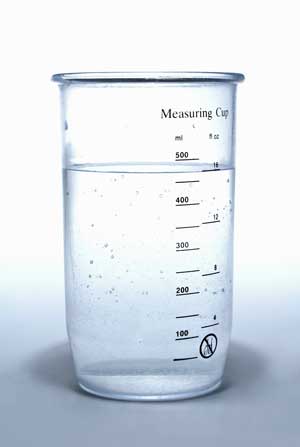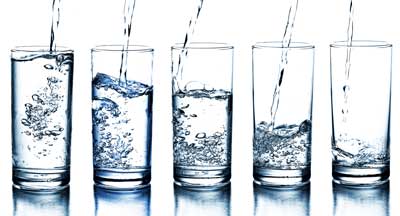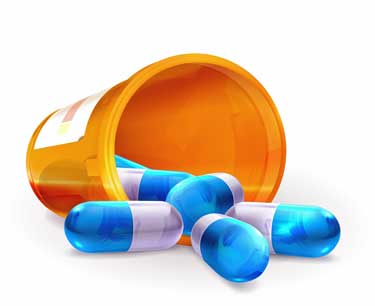“You guys are about a litre short in blood volume, ok? If I’m sitting at five litres, you’re sitting at four. So, you’re really, really sensitive to blood volume changes. If you’re a little dry, you crash. ” Dr. Nancy Klimas
The low blood volume finding in chronic fatigue syndrome has been consistently replicated; there is no doubt that low blood volume is common in this disorder. Low blood volume can cause, among other things, reduced blood flows to the brain (cognitive difficulties), problems standing (orthostatic intolerance), increased heart rates and reduced heart functioning.
While not the entire answer to chronic fatigue syndrome, increasing blood volume can be quite helpful.
Blogs
- Maggies ‘Panic’ – Check out Dr. Bell’s story of an ME/CFS patient who’s panic attacks turned out to be a result of her bodies attempt to deal with low blood volume. ‘Maggie’ improved tremendously using salt and Florinef and for two days she was back to her old self but then mysteriously relapsed.
- The Blood Volume Paradox in Chronic Fatigue Syndrome and POTS – a recent study examines why blood volume is low and suggests that desmopressin, an analogue of vasopressin, may be helpful
- The Blood (Volume) Will Out: Is Ischemia A Key in Both POTS and Chronic Fatigue Syndrome?
- Regular Use of Saline May Reduce Symptoms, Boost Energy in POTS (and ME/CFS?) – saline is a blood volume enhancer and is often used to ameliorate crashes.
- NIH Funds Chronic Fatigue Sydrome (ME/CFS) Grant to Increase Blood Volume – Marvin Medow begins a study examing how effective oral rehydration solution is in increasing blood volume. He believes this cheap and easy to make solution may be more effective than saline.
- Measuring Blood Volume the Daxor Way – check out the best way to assess your blood volume
- See much more on low blood volume including how to diagnose and treat it, and how to make ORS in ourOrthostatic Intolerance Resources section
Non-Drug Approaches
Elevating Your Head While Sleeping
In what’s surely the easiest practice simply elevate the head of the bed six inches by putting some risers under the bed legs at the head of the bed (or by using a body-length wedge shaped cushion. NASA uses this approach to recondition its astronauts after spaceflights. One person (see comments below) found a dramatic improvement in his sleep after doing this for a week.
Salt
“The reduction in salt, which is a good idea for most people, may push orthostatic intolerant people into having symptoms of OT” Dr. Peter Rowe
Many people with chronic fatigue syndrome crave salt. Increasing your salt (with your doctor’s permission) and fluid intake can increase your blood volume increasing blood flows to your heart and brain, enabling you to stand more easily and think more clearly.
Increasing salt intake will only work, though, if you increase your fluid intake as well for (see below). Increasing salt intake should be done slowly and is often achieved simply by eating saltier foods. Some ME/CFS and POTS patients who already had low salt intake have had dramatic improvements by increasing their salt intake. Do not increase your salt intake, however, if you have high blood pressure.
- Dig Deeper: Some great tips on increasing salt intake from POTSRecovery
- Dig Deeper: Martha Kilcoyne received dramatic benefits from increasing her salt intake.
Be consistent! – Dr. Rowe suggests that patients who make a serious (i.e. consistent) effort at increasing their fluid intake will benefit the most. He recommends drinking a glass of liquid every two hours with a goal of drinking at least two liters of water a day (approximately half a gallon). If you’re trying to increase both blood volume and salt tomato juice is an excellent choice.
Oral Rehydration Solution
Oral Rehydration Solution – The World Health Organization’s oral rehydration solution costs just pennies to make. Could it be more effective than saline IV’? A recent study suggests it is. It’s almost certainly the best single solution for increasing blood volume.
Oral Rehydration Solution More Effective than Saline IV at Improving Orthostatic Intolerance
The Doctors Speak
Dr. Peter Rowe
Dr. Peter Rowe is the foremost authority on orthostatic intolerance in ME/CFS. In his 2017 overview of orthostatic intolerance he wrote:
The increased salt and water help ensure that the blood vessels are filled better, and that the heart receives an adequate amount of blood even during upright posture. Drinking a glass of water before venturing out often helps people tolerate the activity. We recommend at least 2 liters of fluid per day.
Our patients who drink fluids regularly throughout the day seem to do better than those who don’t take this task seriously. We recommend drinking fluids every 2 hours throughout the day.
Table salt is also an excellent source of sodium, as it has 2300 mg of sodium per teaspoon. Salt tablets are a way of getting enough sodium without dramatically changing the taste of your foods. If you decide to increase your sodium intake with salt tablets, we suggest that you start slowly, and work gradually up to 900-1000 mg three times a day. Some patients tolerate even higher doses.
Dr. Teitelbaum’s Treatment Recommendations For Low Blood Volume
In August 2009 Dr. Teitelbaum released his treatment recommendations for low blood volume.
He believes ME/CFS patients often ‘drink like a fish and pee like a racehorse’ because their whacked-out hypothalamus is knocking down their adrenals.
- Hydrate yourself by drinking lot of water. Check your hydration levels by checking your mouth and lips to see if they’re dry.
- Use salt liberally – keep all that water you are drinking in your system by taking in more salt. Eat salty foods. (V-8 juices have a good blend of salt and other electrolytes. ) Unless you have high blood pressure or heart failure, you need more salt than most people. (He believes worries about salt are one of the great myths of modern medicine.)
- If your doctor can supply them try saline IVs. (Dr. Bell has reported that several of his patients respond very well to plain saline IVs). Dr. Teitelbaum recommends turning the saline IVs into Meyer’s cocktails if you can.
- Even if your blood tests for iron (ferritin) are only modestly low (or below 50) or the iron percent saturation blood test is under 25%, Dr. Teitelbaum suggests you take iron (1-2 tablets 29 mg. w/vit. C) each afternoon or evening on an empty stomach for 4-6 months. He’s found that iron supplementation can increase energy dramatically in ME/CFS patients with a ferritin level under 50.
- Take testosterone and thyroid even if your test levels are normal.
- Improve heart functioning by taking mitochondrial enhancing supplements such as D-Ribose: 5 gm (I scoop) two times a day for three weeks, twice a day thereafter/ acetyl L carnitine (500 mg, two times a day), coenzyme Q. 10 (200 milligrams a day, Dr. Teitelbaum’s Energy Revitalization Formula.
Give the program 6 to 12 weeks to take effect. For Dr. Teitelbaum’s complete article click here.
Dr Cheney on Increasing Blood Volume
Dr. Cheney recommendation is somewhat dated now but was used for years by many.
- Lying down -Lying down increases your cardiac a ‘whopping’ 2 liters a minute. Some patients, he cautions, have more symptoms lying down.
- Increasing your fluid intake using Hydralyte (Gookinaid) or his HomeBrew particularly in the first six or seven hours of the day. (Some patients do not tolerate blood volume enhancement later in the day.
Gookinaid – “Hydralyte (Gookinaid) is used in athletic events such as marathon running. The makers of Gookinaid state “Gookinaid is effective because it contains the same proportions of potassium and sodium and the same concentration of glucose as blood so that it’s absorbed directly from the stomach into circulation. It increases blood volume without diluting the blood; this means that there isn’t an excess of water for the kidneys to have to eliminate, and less water is lost in urine as happens when you are drinking plain water. Solutions with an excess of sodium, help to retain water but, in the tissues, not in circulation. Excess sodium has to be excreted, ultimately causing more fluid loss and the loss of your own potassium in keeping up with the sodium losses.”
The only problem for some patients is that Gookinaid has some sugar (glucose) in it.
Dr. Cheney’s Homebrew
- 1 cup filtered or spring water
- 1/8 teaspoon of Sea Salt
- 1/8 teaspoon of “No Salt” salt substitute (potassium).
- Add lime juice or an herbal teabag as well as stevia for taste (or something to give it flavor without altering the electrolyte balance: peppermint, peach, raspberry zinger, etc.)
You can add 1 cup of Seltzer Water in there too, however, if you do, you need to double the amounts of Sea Salt & “No Salt” as has been done in the recipe below.
Cheney recommends four to eight glasses Gookinaid or Homebrew a day.
Others
- Salt/C Plus Protocol for Lyme Disease – a high salt/Vitamin C protocol the creators swear is effective for Lyme. A book is available.
- NUUN – Some people have found NUUN tablets helpful.
- Gastrolyte – See comments below from a patient who’s benefited greatly from Gastrolye.
- Pedialyte – From Wikipedia: “Pedialyte is an oral electrolyte solution manufactured by Abbott Laboratories that is designed to replace fluids and minerals that are lost when a child has diarrhea with or without vomiting. (It is similar to oral rehydration solution – Cort) Pedialyte is designed to promote quick fluid and electrolyte absorption while a child is sick and contains the quantity and ratio of the sugars glucose and fructose, and electrolytes recommended by the American Academy of Pediatrics (AAP). This makes it very low in sugar compared to most sports drinks (100 calories/liter vs. Gatorade’s ~200) and higher in both sodium (1,035 mg/L vs. Gatorade’s 465) and potassium (780 mg/L vs. Gatorade’s 127).”
Drugs
Blood Volume Enhancers
- Clonidine
- Fludrocortisone (Florinef)
- Erythropoietin (Procrit, Epoietin-alpha)
- Saline Solution
- Oral Contraceptive Pills
- Vasopressin (Desompressin) – a small study find it’s effective for some with ME/CFS/POTS.
Drugs That Effect Epinephrine/Norepinephrine Release
- Atenolol (Tenormin)
- Propanolol (Inderal)
- Disopyramide (Norpace)
- Angiotensin converting enzyme inhibitors/angiotensin receptor blockers
Drugs That Increase Blood Flows by ‘Tightening’ the Blood Vessels
- Stimulants (Ritalin, Dexedrine, Adderall)
- Midodrine (ProAmatine, Amatine, Grudron)
- Modafanil (Provigil)
- Pseudoephedrine (Sudafed)
- Selective serotonin reuptake inhibitors such as fluoxetine (Prozac), sertraline (Zo0loft) and escitalopram (Lexapro) or related medications like Effexor Cymbalta.
- NSAIDS – can do this by reducing the levels of prostaglandins and other factors that constrict the blood vessels.
Others
- Pyridostigmine bromide (Mestinon) – Mestinon did wonders for one ME/CFS/POTS patient. Check out her story in A Mestinon Miracle.









